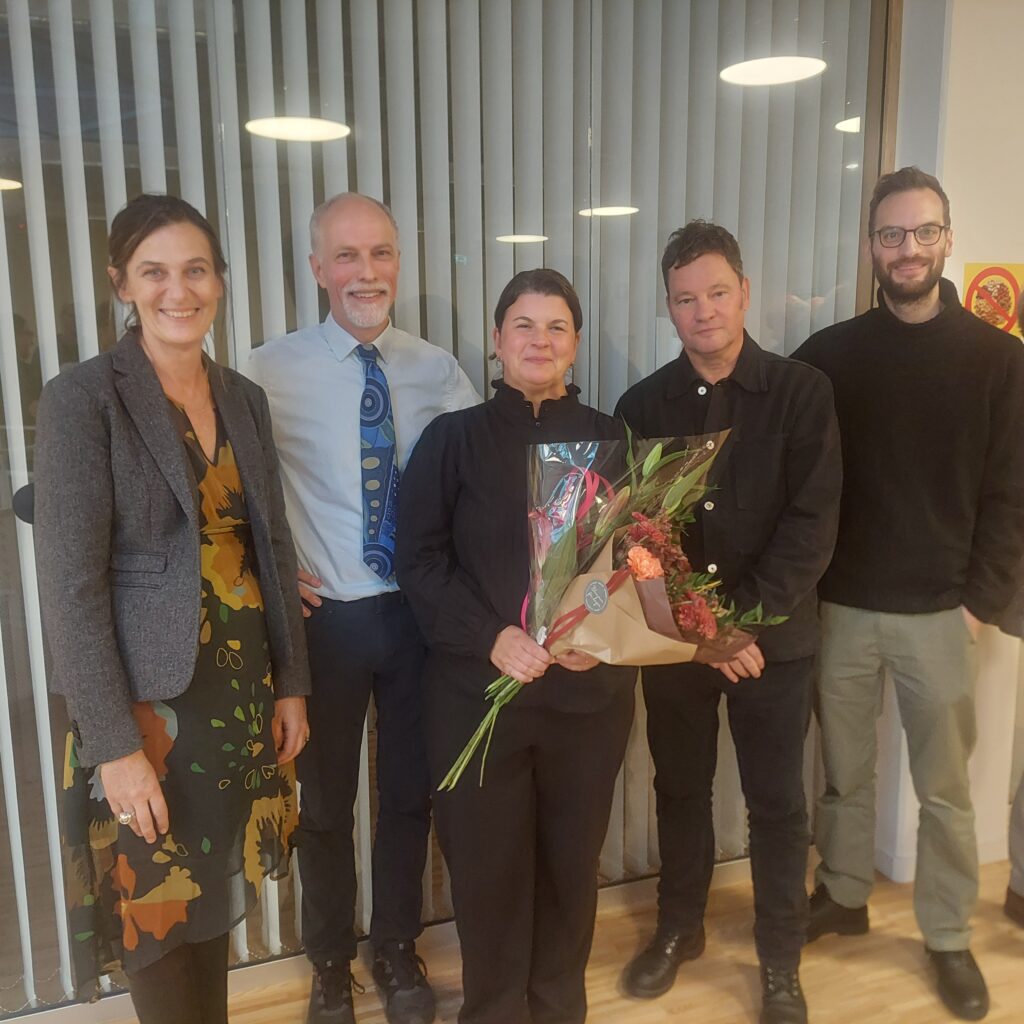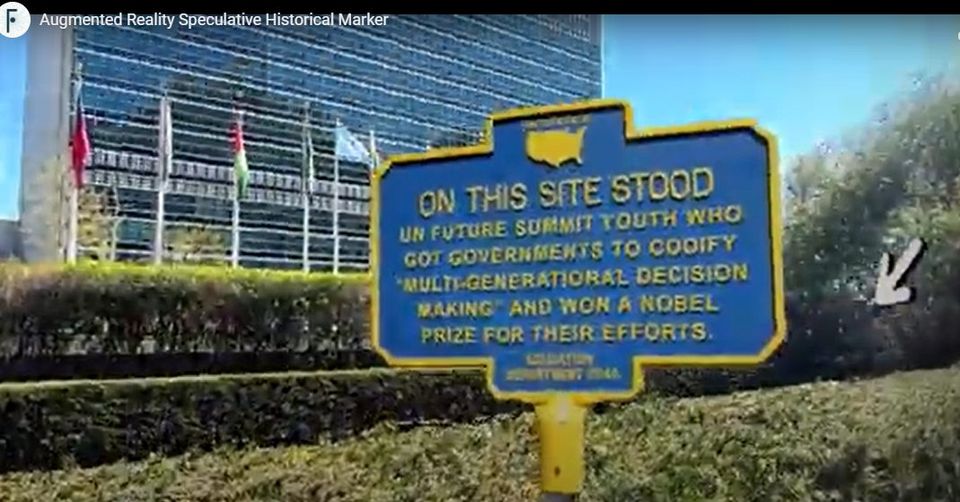Cornelius Holtorf visited the activities with young people during Kalmar Town Festival, organized by Kalmar municipality’s cultural section under the label “Expedition Future” and inspired by our work in the UNESCO Chair on Heritage Futures (10 August 2024).
Cornelius Holtorf and Anders Högberg ran a Mini Futures Workshop for 30+ colleagues during the Kick-off meeting of the Department of Cultural Sciences at Linnaeus University, Sweden (20 August 2024).
Cornelius Holtorf sent comments and suggestions to the revised draft guidance note on ‘Climate action for living heritage’ to the UNESCO Living Heritage entitity (20 August 2024).
Cornelius Holtorf, Anders Högberg and Gustav Wollentz met with Alison Heritage and José Luiz Pedersoli at The International Centre for the Study of the Preservation and Restoration of Cultural Property (ICCROM) in Rome to discuss mutual interests and future collaboration in the area of promoting futures-thinking and futures literacy in the global heritage sector (30 August 2024)
Cornelius Holtorf presented a talk on “Is Archaeology Ready to Address the Climate Heritage Paradox?” for an audience of 25+ attending the session on “Archaeologies of Climate Change? Current Issues and Future Directions” held at the 30th Annual Meeting of the European Association of Archaeologists in Rome, Italy (31 August 2024)
Cornelius Holtorf attended an online symposium on “Nuclear Futures. Art, Speculation, Matter, Performance” arranged by Linköping University (11 September 2024).
Cornelius Holtorf took part in meetings of the Pledge Network, promoting strong references to future generations and their interests in the UN Summit of the Futures in September 2024 in New York and its aftermath (12 September 2024).
Cornelius Holtorf attended the report launch of the project “The Nuclear Spaces: Communities, Materialities and Locations (NuSPACES)” featuring speakers Sam Alberti (National Museums Scotland) and Elizabeth Norton (NDA) addressing questions of nuclear cultural heritage, held at the Science Museum, London, and online (18 September 2024).
Cornelius Holtorf participated in a side-event to the UN Summit of the Future organised by the Culture 2030 Goal Campaign and entitled “No Future Without Culture: Reflecting and Imagining on the Place of Culture in Delivering the Past for the Future” (20 September 2024).
Cornelius Holtorf followed online selected parts of the Action Days preceding the UN Summit of the Future, featuring, among others António Guterres, General-Secretary of the United Nations, Gabriella Ramos, the UNESCO Assistant Director-General for the Social and Human Sciences, Mamphela Ramphela, the former Co-Director of the Club of Rome, and Kim Stanley Robinson, the author of The Ministry for the Future (20-21 September 2024).
Cornelius Holtorf had an informal meeting in Cordoba, Spain, with Matthias Ripp, World Heritage Coordinator of Regensburg (Germany) and OWHC Regional Division Representative, discussing future collaborations (24 September).
Cornelius Holtorf contributed to a meeting of cirka 30 international experts and UNESCO staff finalising a guidance note on Safeguarding intangible cultural and climate change. The expert meeting was chaired by Fumiko Ohinata, Secretary of the UNESCO 2003 Convention and held digitally on 25-26 September 2024.














[…] The new funding for this and a number of additional smaller projects, means that the Climate Heritage Network is…
[…] Chair on Heritage Futures « Culture, cultural heritage and COP26 […]
[…] mer på Unescoprofessurens blogg http://blogg.lnu.se/unesco/?p=1061 Besök Öland 2050! […]